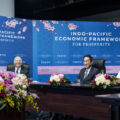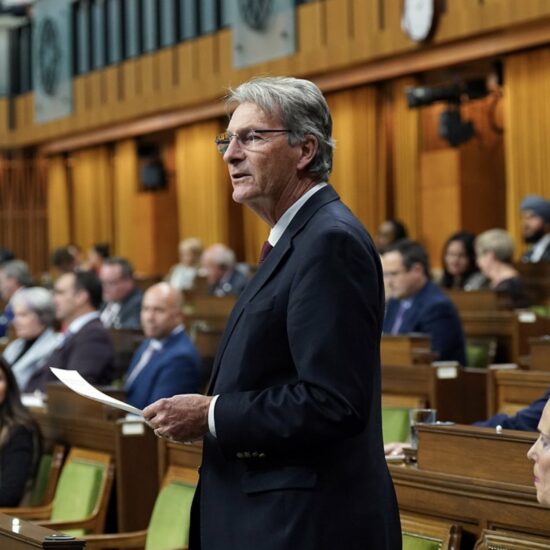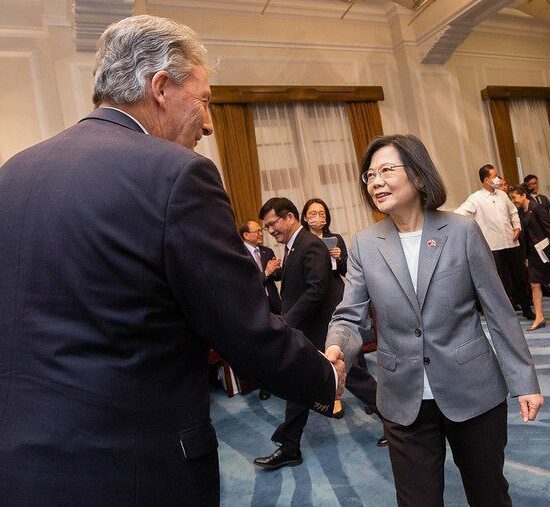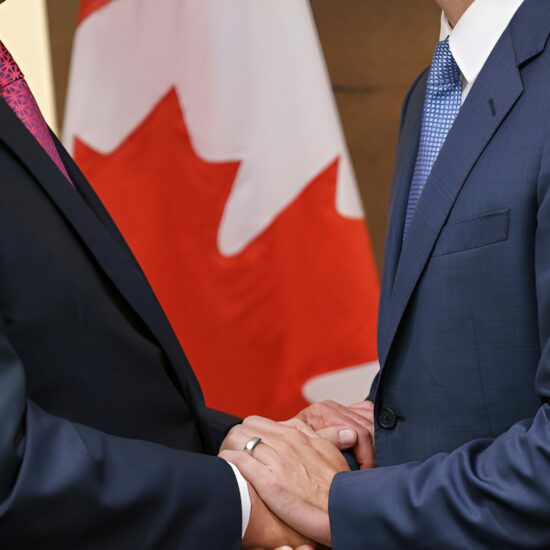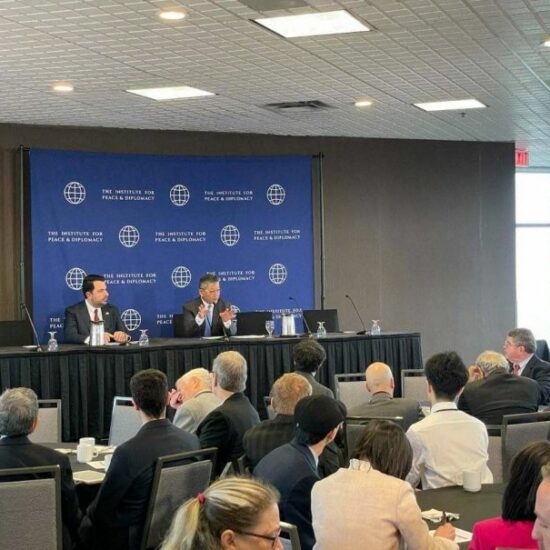From a realist perspective, Canada’s long-term interests are guaranteed when its foreign policy is centered on multilateralism, which allows the country to capitalize on its soft power as a complementary, but a vital force to protect and promote liberal values and respect for human rights on the international stage. Hence, unilateral approaches such as Magnitsky sanctions are counterproductive, particularly when it comes to dealing with a major global power like China.
This article was originally published on The Hill Times.
By Younes Zangiabadi
TORONTO—After weeks of Canada’s diplomatic restraint from joining other allies like Australia in calling for an international investigation into China’s early handling of the global pandemic, Prime Minister Justin Trudeau finally toughened up on Beijing during one of his latest daily briefings when he said that there are many questions, “particularly, for China,” around the origins and behaviours in early days of the COVID-19 global pandemic.
Soon after, Chinese Ambassador Cong Peiwu, for the first time since the outbreak, said that the Chinese government would be, indeed, open to an “inclusive” review of the coronavirus that is led and run by the World Health Organization. While this is a positive development that must be welcomed, it is still unknown whether the investigation process will or will not meet the expectation of the international community. Regardless of that, Canada made the right decision to join other allies in demanding more transparency from China.
However, there is still some domestic pressure on Trudeau’s government to go beyond the use of diplomacy and take more coercive measures against China. For instance, there have been calls from influential former ministers—on both sides of the aisle—to impose Magnitsky sanctions on Chinese officials whom some, including former Liberal minister of justice, Irwin Cotler, accuse of suppressing key information related to COVID-19 in the early days of the outbreak in the city of Wuhan.
In an interview with The Globe and Mail, Cotler said that “the Chinese Communist Party has to be held accountable through naming and shaming, in the court of public opinion, in actual courts of law through international tort actions, and through Magntisky sanctions.” In the same vein, Peter MacKay, also a former minister of justice who is currently in the race for the leadership of the Conservative Party of Canada, has called for invoking the Magnitsky Act once the individuals accused of concealing and fabrication of data for COVID-19 are identified in China.
The Justice for Victims of Corrupt Foreign Officials Act (Magnitsky sanction) allows the Government of Canada to sanction “foreign nationals responsible for gross violations of internationally recognized human rights,” imposing travel bans and asset freezes in Canada. The act is named after Sergei Magnitsky, the Russian lawyer who was jailed, tortured, and killed in a prison in Moscow after revealing state-backed fraud in Russia.
So far, Canada’s Magnitsky sanctions have targeted officials of foreign countries including Russia, Saudi Arabia, Venezuela, South Sudan, and Myanmar. Despite extensive efforts by some Conservative Senators to add Chinese officials to the Magnitsky sanction’s list, Prime Minister Justin Trudeau has not yet shown willingness to support these hardline measures against China. While this hesitation might seem contradictory to Canada’s commitment to promoting international justice and respect for human rights, it is indeed a pragmatic decision aligned with Canada’s long-term national interests.
First and foremost, sanctions are foreign policy instruments that aim to either coerce, constrain, or signal the sanctioned party to change its behaviour and actions that are believed to undermine and violate international norms and values. Canada, as a middle power, does not merely have the political, economic, and financial levers to constrain or coerce China to change its behaviour. Unfortunately, the lack of progress in resolving the ongoing detainment of Michael Kovrig and Micheal Spavor is a clear indication that Canada, despite much effort, is not able to influence China on its own.
Consequently, Ottawa could only resort to Magnitsky sanctions as a way to send a signal to Beijing that it is concerned and discontented with Chinese violations of human rights. This is exactly what Irwin Cotler refers to as “naming and shaming.” But one must conduct a cost-benefit analysis of such an approach toward China when it is almost certain that Canada’s unilateral imposition of Magnitsky sanctions will not be effective in inducing any kind of change in Chinese behaviour, let alone protecting and promoting human rights inside the country. In technical terms, it is also impossible to implement such measures, considering difficulties associated with identifying Chinese officials responsible for human rights violations and the alleged coverup of the pandemic.
It is important to remember that China has historically opposed what it considers as foreign meddling in its internal affairs and its ambassador to Canada has previously made that clear when he warned Ottawa of “very firm countermeasures” if Parliament adopts a Senate motion that called for Magnitsky sanctions on China for its alleged human rights abuses against Muslim Uighurs and pro-democracy protesters in Hong Kong. Therefore, these sanctions will undoubtedly further deteriorate the already strained Canada-China relations, creating unnecessary and serious crises for Canada as it struggles to recover and rebuild its economy in the post-pandemic era.
In addition, the global pandemic has exposed serious vulnerabilities in Canada’s supply chain, which makes taking such unilateral measures a huge strategic mistake as it stigmatizes China at a time when much of Canada’s import of personal protective equipment including face masks currently come from that country. Prime Minister Trudeau certainly understands this reality and that is why his government has recently taken concrete steps to diversify Canada’s trade partnerships with other countries across Asia and Europe.
From a realist perspective, Canada’s long-term interests are guaranteed when its foreign policy is centered on multilateralism, which allows the country to capitalize on its soft power as a complementary, but a vital force to protect and promote liberal values and respect for human rights on the international stage. Hence, unilateral approaches such as Magnitsky sanctions are counterproductive, particularly when it comes to dealing with a major global power like China.

